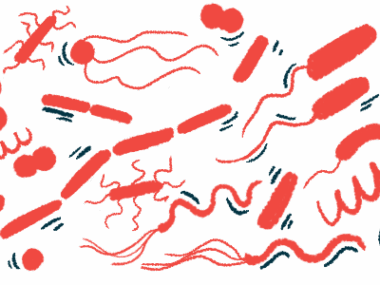US Veterans With HIV at Higher Risk of PH, Large Data Study Finds
Written by |

Natali _ Mis/Shutterstock
U.S. veterans infected with the human immunodeficiency virus (HIV) — the virus that causes AIDS — are at higher risk of pulmonary hypertension (PH), according to a large study in this population.
“HIV infection had a direct effect on incident pulmonary hypertension among US veterans,” including those with no history of heart failure or progressive lung disease, its researchers wrote.
The study, “Association between HIV and incident pulmonary hypertension in US Veterans: a retrospective cohort study,” was published in the journal The Lancet Health Longevity.
Previous research suggests that the incidence of pulmonary arterial hypertension is higher among people living with HIV, but these studies were small and of short duration.
To better determine whether HIV is indeed linked with a higher incidence of PH, researchers in the U.S. analyzed data from the Veterans Aging Cohort Study (VACS). This large electronic health record database includes veterans with and without HIV and other diseases, as well as PH-relevant measures of pulmonary artery systolic pressure (PASP) — the blood pressure in the pulmonary artery during a heartbeat.
Veterans whose data were part of this study had been referred for an echocardiogram (ultrasound imaging of the heart), and all had a PASP of 35 mmHg or lower. (Incident PH was defined by researchers as a PASP higher than 35 mmHg on a subsequent echocardiogram; a PASP value of 35 mmHg corresponds to a mean pulmonary artery pressure of 21 mmHg.)
Data covering 13,028 veterans were included in he study, out of the 21,314 VACS participants with at least one measured PASP during the study’s period (April 2003 – September 2017). Of these 13,028 veterans, 4,174 (32%) were HIV-positive and 8,854 participants (68%) HIV-negative.
Most (12,657) were men, with a median age of 58. Almost a third (3,957 people) had chronic obstructive pulmonary disease or COPD — with heart failure “the most common risk factors for pulmonary hypertension among US veterans,” the study noted. Heart failure was rare in this group at the start of the study, affecting 2%.
These veterans were followed for a median of 3.1 years. During this time, the researchers registered 1,372 new PH cases — 468 in veterans with HIV and 904 in those without HIV.
Analysis revealed that the risk of PH onset was 1.25 times higher in the group with HIV, a statistically significant difference that remained so after adjusting for factors such as age, sex, race or ethnicity, heart failure, COPD, diabetes, and smoking status.
Scientists then assessed how PH risk varied relative to blood levels of CD4-containing cells, a type of immune cell known to help fight HIV infection. A low CD4 count indicates an immune system weakened by HIV.
Veterans with low CD4 counts — below 200 cells per microliter of blood — were at an almost two times (1.94) higher risk of PH than those without HIV. This risk was 1.29 times higher if cell counts were between 200–499 cells per microliter, but no higher risk was found at CD4 counts 500 or more cells per micro.liter
People with HIV and high loads of this virus — 500 copies per microliter or greater— also had a higher risk of PH than did those without HIV.
Nearly identical results were seen when the researchers conducted a second and more stringent analysis — one using PASP values of greater than 40 mmHg to define PH.
HIV infection also correlated with greater rates of PASP progression, defined as an increase in PASP of more than 10 mmHg from the study’s start.
Low CD4 counts and a high HIV viral load associated with greater risk of PASP progression.
These results indicate that “US veterans living with HIV appear to be at increased risk of pulmonary hypertension compared with demographically similar uninfected veterans,” although those “with CD4 counts of 500 cells per μL [microliter] or more or with HIV viral loads lower than 500 copies per mL [milliliter] did not display increased risk,” the researchers wrote.
“As with other cardiopulmonary diseases, suppression of HIV should be prioritised to lessen the burden of pulmonary hypertension in people living with HIV,” they added.
Among the study’s limitations was its use of retrospective data collected from echocardiograms, and its findings may not apply to asymptomatic people with HIV in the community.




